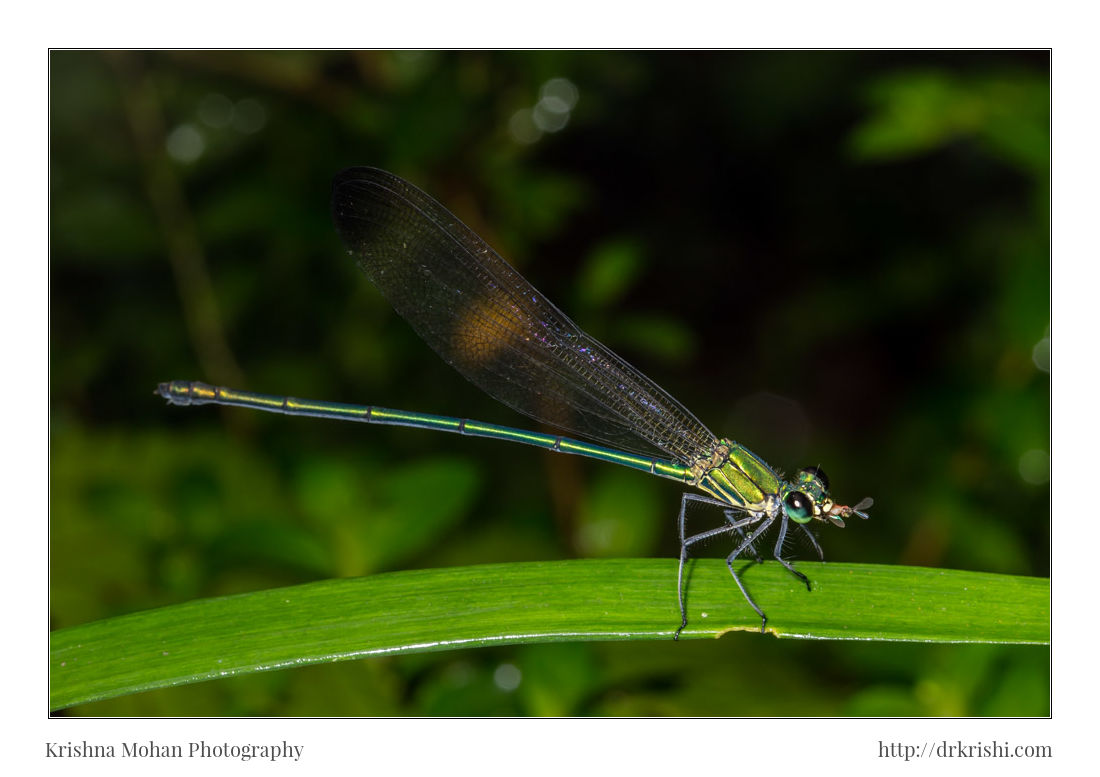
I found this male Clear-winged Forest Glory (Vestalis gracilis) damselfly at Sammilan Shetty Butterfly Park. It was waiting for its snack to arrive on the watermelon which was kept to attract butterflies. Within no time, I saw it picked a fruit fly and then flew over to shade to munch on it. I had taken my camera and 100mm lens along with flash. Unfortunately, I did not bring my softbox. This was a bad news because these damselflies love dark places which make photography without flash very difficult. Flash however drastically changes how they look. Without properly diffusing the flash the result gets worse.

The above image was captured without flash as the watermelon it was sitting reflected ambient light and helped me. For all other captures in this blog, I had to use flash as the light was inadequate. I tried my best to soften the light using a makeshift softbox using the folded handkerchief I had, over the flash head. But the results are not optimal. A well-made softbox is essential for a good macro capture. Most of the ready made ones do not work well. Do It Yourself (DIY) softboxes allow you to cater your needs. Just search for “DIY Macro rig” on google will give you plenty of choices. I used Canon EOS 5DS R With Canon EF 100mm f/2.8L Macro IS lens to capture this damselfly.

Clear-winged Forest Glory, Vestalis gracilis, is a species of damselfly belonging to the family Calopterygidae. It is known commonly as the clear-winged forest glory or clear-winged flash-wing. It is native to Southeast Asia. The male and female are similar in size.The male is iridescent green with a yellow and black underside. It has brown legs and blue-tinged transparent wings. The eyes are dark brown above and greenish yellow below. The female is duller greenish brown in colour.

It is a large and graceful damselfly. Being large, it flies a little bit clumsily and tends to crash land on leaves and branches much smaller than itself, but looks really beautiful. It is the most common of the Vestalis species. It lives near slow moving water under lots of forest coverage. This is a common species across much of its range. It breeds in forest streams, often in disturbed and cultivated areas too. Commonly seen as a group rest among bushes in forest paths and shades together with black-tipped forest glory Vestalis apicalis.

